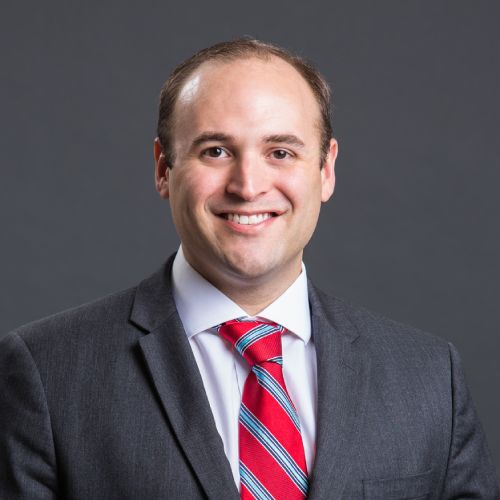
If you have been injured by a healthcare provider, you may have a potential lawsuit for medical malpractice. However, not all injuries that occur in the course of providing healthcare rise to the level of medical malpractice.
A healthcare professional has a duty to act in a manner that is consistent with other healthcare professionals in the industry. Providing evidence that they breached their duty, that this breach caused your injury, and that damages resulted is how to prove medical malpractice. The responsibility for proving the case rests on the person who suffered the injury.
How Do You Prove Medical Malpractice in Florida?
A claim for medical malpractice requires proof of four elements. As with a negligence claim, the elements to prove medical malpractice are:
- Duty,
- Breach,
- Causation, and
- Damages.
Each of these must be established to successfully recover compensation for medical malpractice in Florida.
What Is a Duty?
Healthcare providers have a duty of care to you. This involves acting according to the standard of care in the industry. Healthcare providers—including, but not limited to, doctors, physician assistants, nurses, hospitals, and pharmacists—have a duty to you to provide care in a reasonable and prudent manner in line with what others in the industry are providing. For example, a pharmacist owes you a duty to dispense the correct medication in the right dosage and amounts.
It is typically not difficult to establish that a healthcare provider owes you a duty; you just need to show that a relationship exists between the healthcare provider and you. You can use medical records and other documentation to prove that you were in a healthcare provider-patient relationship.
Establishing the scope of the duty can be more complex. You must present evidence on the standard of care in the industry. To accomplish this, you’ll typically need expert testimony on the standard of care other healthcare providers in the same field and with similar experience would adhere to. For example, if a pharmacist filled your prescription with the wrong medication, you might present expert testimony from another pharmacist about the steps pharmacists generally follow to avoid errors.
What Is a Breach?
The next part is showing that the healthcare provider breached their duty. A breach occurs when a healthcare professional deviates from the standard of care expected of comparable professionals. In the pharmacist example above, you might present evidence that your pharmacist did not take all the steps recommended by your expert to avoid errors in filling your prescription. Proving the scope of the healthcare provider’s duty and that they breached their duty can be the most difficult part of a medical malpractice claim.
What Is Causation?
The next part of proving a claim for medical malpractice is showing causation. This means that you have to prove that the healthcare professional’s breach was the cause of your injuries. This can be difficult if your condition worsened on its own; it can be hard to separate what occurred naturally and what was the result of the breach. The breach must be the direct cause of the injury.
What Are Damages?
The final part of proving medical malpractice is showing damages that resulted from the injury that you suffered. This should be fairly straightforward; it can be anything from medical bills to pain and suffering. Damages can be quite broad and can include physical, emotional, and financial harm. If you had no damages, you likely would not be considering legal action anyway.
How Much Evidence Do You Need to Prove Malpractice?
The burden of proof in a medical malpractice claim is on the person making the claim against the healthcare provider. That means that you must present evidence proving all the elements of medical malpractice; it is not up to the healthcare provider to disprove the elements. Under Florida law, the greater weight of the evidence must weigh in your favor. That means that the jury will have to assess the disputed evidence presented and decide whether the malpractice allegations are more likely true than not.
Medical Malpractice Claims Require Testimony from a Qualified Expert Witness
A qualified expert witness will provide testimony on the standard of care in the industry. This will look at the actions a similarly situated medical professional would take (or not take). This may depend on the medical provider’s specific profession, their experience, and where they practice.
If the case involves surgery, the expert would provide testimony on what a similar surgeon would have done, given the situation. The expert provides evidence of what is required by the duty of care and sheds light on the scope of the duty. A qualified expert witness will also testify to whether the healthcare provider upheld the standard in that case. Expert witness requirements are codified in the Florida Statutes, which impose strict rules on who can testify as an expert in a medical malpractice case.
As you can see, it is essential to have a guide through this process, and we can assist with advice and strategy for how to prove a medical malpractice claim.
What Are the Time Limits for Proving Claims?
Another factor to consider when figuring out how to prove a claim for malpractice is that there is a time limit on bringing claims. You could have the ability to prove a medical malpractice claim but be barred from doing so because the claim was not brought in a timely fashion. Florida’s “statute of limitations” generally requires you to file a claim for medical malpractice within two years of the date the malpractice occurred or the date you discover the malpractice, with some exceptions. Because this time is short, if you think you have a medical malpractice claim in Florida, you should contact us as soon as possible.
Experienced Medical Malpractice Attorney
If you think you might have a medical malpractice claim, reach out to our team for a free consultation. At James Horne Law PA, we have extensive knowledge of how to prove medical malpractice and will work to develop the best possible strategy for your claim. James “Jay” Horne has devoted his practice to litigation and works exclusively for people who have been wronged by others.


